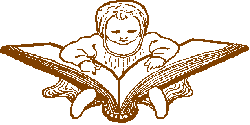
PSYCHOHISTORY
Articles & Texts
[Books texts] [Journal Articles] [Charts] [Prenatal]
[Trauma Model] [Cultic] [Web links] [Cartoons] [Other]
 |
Digital
Archive of PSYCHOHISTORY Articles & Texts [Books texts] [Journal Articles] [Charts] [Prenatal] [Trauma Model] [Cultic] [Web links] [Cartoons] [Other] |
Reprinted with permission of the National PTA -- 1993
To many people discipline means punishment. But, actually to discipline means to teach. Rather than punishment, discipline should be a positive way of helping and guiding children to achieve self-control.
'Rather than
|
Why children need discipline
|
Discipline is not the same as punishment
|
'Studies
|
In school, as at home, the most effective
rules are those decided upon by everyone:
students, teachers, administrators and parents-and enforced by
all.
This page is made up of excerpts from http://www.pta.org/programs/docs/discipln.rtf found on the National PTA Web Site. The original contains more hints on responsible parenting.
 |
Digital
Archive of PSYCHOHISTORY Articles & Texts [Books texts] [Journal Articles] [Charts] [Prenatal] [Trauma Model] [Cultic] [Web links] [Cartoons] [Other] |

| Page
originally created for the EastLake PTA |
 Dr. Straus |
Spanking by Parents and Subsequent
Antisocial Behavior of Children |